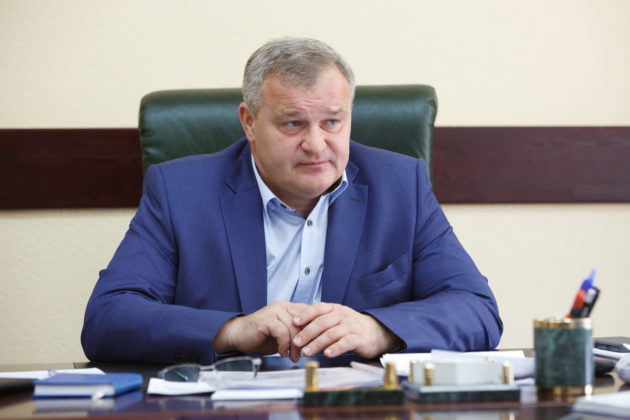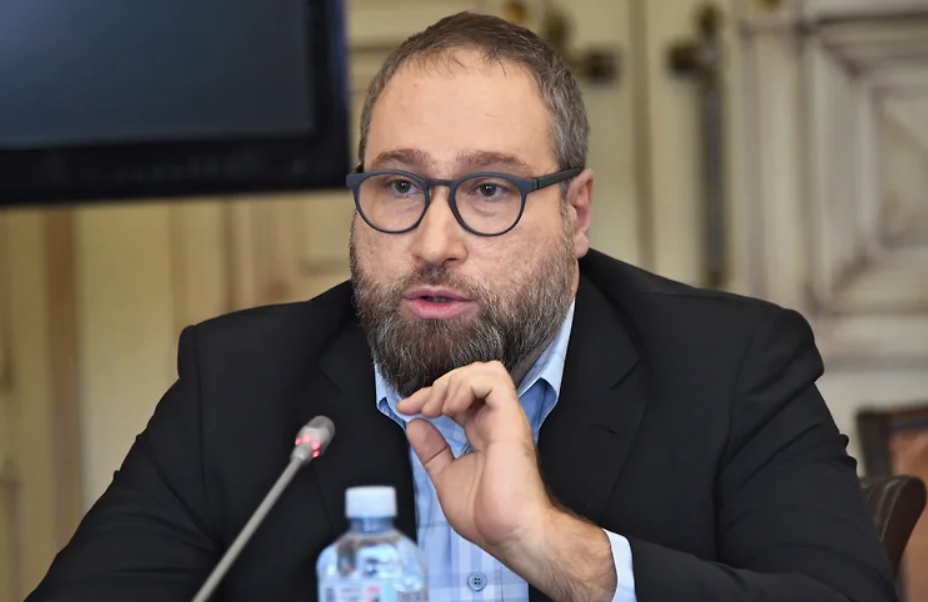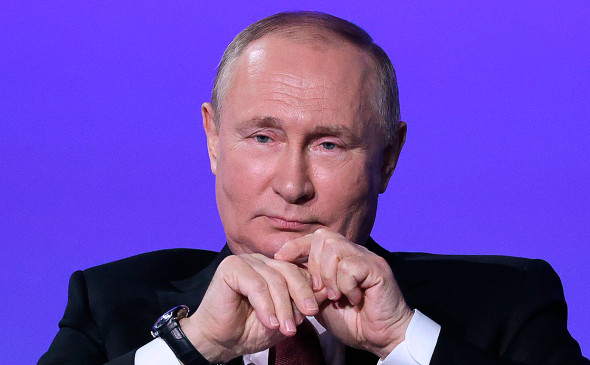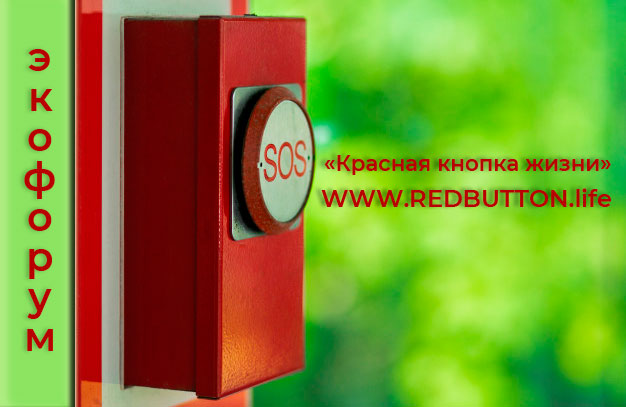If you look at the bio of Rashid Ismailov (TIN 773772839520 ), he might strike you as a highly professional ecology expert who champions a healthy environment for the citizens of his country.
Education:
Moscow Academy of Economics and Law (Honors graduate)
Diplomatic Academy of the Russian Foreign Ministry
Professional experience:
Before 2005: senior positions in commercial structures
2005-2010: expert at the Federation Council of Russia
2010-2017: CEO of the Center for Green Standards non-profit partnership
2018 to present: Head of the Russian Ecological Society
Expert activity:
Deputy Chairman of Public and Business Council at the Ecology national project
Presidium member of the Commission for Ecology and Natural Resources at the Russian State Council
Head expert for ecology of the Expert Council at the Federation Council Committee on Agrarian and Food Policy and Nature Management
Expert of the Russian Audit Chamber
Member of the Central Environmental Commission at the Russian Railways government-owned company
Member of the working group on environmental policies at the Russian Highways government-owned company
Member of the Russian Geographical Society, member of the Legal Ethics Commission at Russian Association of Lawyers
Head of the Coordinating Council for Ecology under Chelyabinsk Oblast Governor; Head of the Expert Council for Ecology under Omsk Oblast Governor; Head of the Ecological Council under the Head of the Komi Republic
Awards:
Commemorative medal of the President of the Russian Federation
Certificate of Honor from the Russian Minister of Natural Resources and Ecology
Badge for “Excellence in Nature Protection”
An analysis of protests in Russia shows that environmental agenda is central to both political and social forms of protest and civic activism. People take to the streets in pickets and rallies, write complaints and appeals to regulatory authorities, and file lawsuits against organizations whose activities may lead or have led to environmental degradation.
Involving the expert community—lawyers, biologists, ecologists, hydrologists, industrial safety specialists, and others whose opinion can be broadcast—is critical for environmental protesters, allowing them to lose the label of “lunatics” in the eyes of the public. Overcoming the information blockade is another factor helping an issue to be resolved in favor of the protesters.
ENVIRONMENTALIST FOR HIRE
Industrial companies whose activities lead or may lead to environmental degradation such as river and air pollution or soil deterioration are usually large taxpayers, and have lobbyists at the regional level. They pay local, and sometimes federal, media to paint a positive picture of them, and if a protest escalates, they produce “pocket” experts to calm the public and to offer counterarguments. Rashid Ismailov is one such “expert for hire”.
Shies, Arkhangelsk Oblast
One recent surge in civic activity in Russia took place at the Shies station, on the border between Arkhangelsk Oblast and the Komi Republic, where people protested against the construction of a landfill. The construction project had involved significant cash injections into the Arkhangelsk regional budget. It was fast-tracked in all possible regulatory approvals, and even brought about a change in the regional legislation: the authority to approve draft development plans were transferred from municipalities to the regional government.
In order to “sell” the Shies Eco Techno Park project to the residents, a massive information campaign was rolled out at all levels, from regional to federal, with hand-picked environmentalists featured as experts. One of them was Rashid Ismailov, who spoke a lot about the safety of the future landfill. In October 2018, the government-owned RIA news agency posted his comment in which he described the landfill as environmentally safe. He articulated similar expert conclusions later to the same source, touting the prospects of storing European wastes in Shies. All his arguments were refuted by an entire pool of world-famous scientists at the round table designed to discuss the environmental impact of the Shies landfill, which took place in autumn 2019 in Moscow.
Protest on June 2, 2019, in Syktyvkar city. Source: https://stopshies.ru/photos/.
Brief information: Shies railway station is located about 700 km north of Arkhangelsk and about 100 km west of Syktyvkar, the capital of Komi. In 2018, works began there to build a landfill of more than three square kilometers in area, with a planned expansion to 30 square kilometers. The landfill was to accommodate up to 2.5 million tons of solid household wastes from Moscow and Moscow Oblast annually. The regional authorities kept the start of the landfill construction secret. However, local residents documented the activities at the site and posted their photos and videos on the VK social network in July 2018. The concealment of information, absence of any public discussions, distortion of facts, and aggression towards activists from the construction site security guards triggered the largest rallies in 20 years in the Komi Republic, Arkhangelsk Oblast, and Vologda Oblast. Activists initiated a regional referendum, held single-person pickets, kept daily watch at the Shies station and adjacent areas, and filed multiple lawsuits. The consolidated efforts of the three regions over two and a half years—from August 2018 through February 2021—resulted in the closure of the construction site.
Kolva River, Komi Republic
In spring 2021, an accident occurred at the Osh oil field, which led to a spill. On May 11, 2021, the Russian Emergency Ministry’s branch in the Komi Republic discovered oil in the Kolva River. The Lukoil-Komi Company was found responsible for the hydrocarbon contamination. Due to the large-scale pollution of the Kolva, Usa, and Pechora rivers, a state of emergency was declared in three districts of the Komi Republic. Lukoil-Komi reported that about 90 metric tons of oily liquid got into the soil, while only nine tons actually spilled into water bodies. However, Aleksandr Sladkoshtiyev from the Pechora Rescue Committee, a local environmental NGO, asserted that the pipe diameter, design documents, and the officially reported duration of the accident suggested that at least 500 metric tons of oil had ended up in the river. Experts from Greenpeace and the World Wildlife Fund, who visited the spill site in May, did not agree with the official estimates either.
Lukoil-Komi organized a cleanup of the Kolva River and its banks, inviting local residents and contractors to join in.
Photo: http://respublika11.ru/2021/05/14/na-kolve-sobirayut-neft/
The Pechora Rescue Committee, together with the New Republic news channel, organized an expedition along the Kolva River in order to make sure that the effects of the accident had been remedied. They inspected 208 km of the river and its banks and took samples of water and bed sediments. Clots of an oily black viscous liquid with a petroleum smell were observed everywhere. Along the banks of the tributaries, bushes were partly coated with a black oily substance. Activists found two places where, in violation of the current law, the oil sludge and oil-stained vegetation had been burned. The soil layer of the banks, probably where the pollution was most significant, had been partially removed. Barges must have been used to carry away the sludge.
During the expedition, the activists spotted a boat cruising the river and identified several passengers. They were Vasily Smirnov from the Komi branch of the All-Russian Nature Conservation Society, a Lukoil-Komi representative, and Rashid Ismailov, Chair of the Russian Ecological Society.
A couple of days later, the federal TV channel Russia 24 aired an interview with Rashid Ismailov, where he stated that he with some other experts had sailed along the Kolva River, flown over it in a helicopter, and found no traces of oil. According to him, all the negative effects of the spill had been eliminated. The activists then released a video where they compared the official statements of Ismailov and other “pocket” public figures against the actual state of the river and its banks a month after the spill.
Head of the Komi Republic must have appreciated the way one of the largest taxpayers in Komi had been protected because in August 2021 Rashid Ismailov was appointed Chair of the Ecological Council under the Head of Komi. As of June 2022, the Council never assembled.
Add ’em to the foreign agent list!
On April 7, 2022, the Russian Ecological Society headed by Rashid Ismailov sent a letter to the Ministry of Justice with a request to check if Greenpeace and the World Wildlife Fund (WWF) might qualify as “foreign agents.” After the Russian Ministry of Justice refused to declare those entities foreign agents, Rashid Ismailov vowed he would continue seeking ways to add them to the list of undesired organizations.
Chelyabinsk and Omsk, beware!
Beware! Rashid Ismailov also heads the Coordination Council on Ecology under the Governor of Chelyabinsk Oblast, and the Expert Council on Ecology under the Governor of Omsk Oblast. We strongly recommend that residents and activists of Chelyabinsk and Omsk take a closer look at and listen to what values he promotes and lobbies. Perhaps at this very moment, like the residents of Arkhangelsk Oblast and the Komi earlier, you are being sold another potential environmental disaster skillfully wrapped in an “expert” opinion.
@blackmark_en – in Russian
Follow us:
Telegram in Russian
Telegram in English
Facebook in Russian
Facebook in English
Instagram in Russian
Instagram in English












